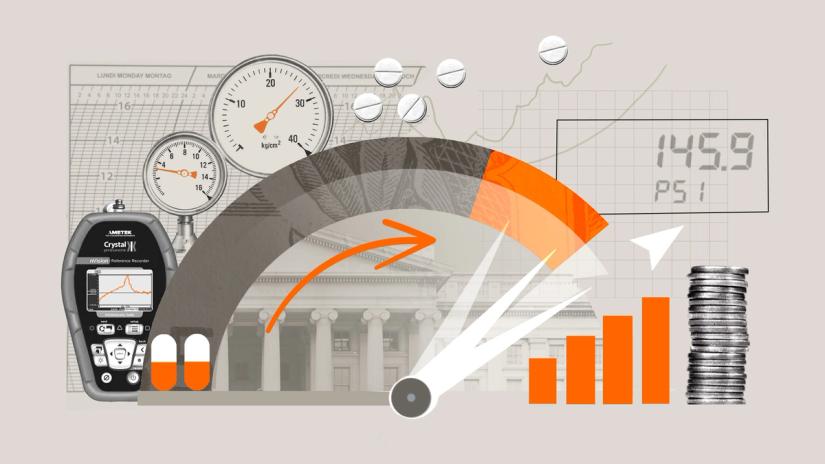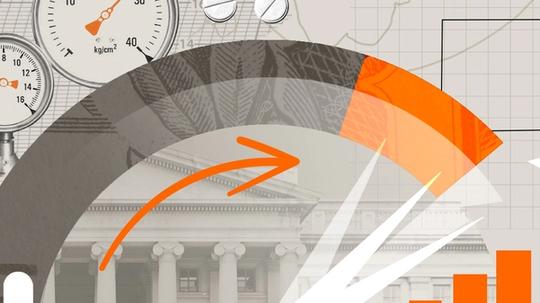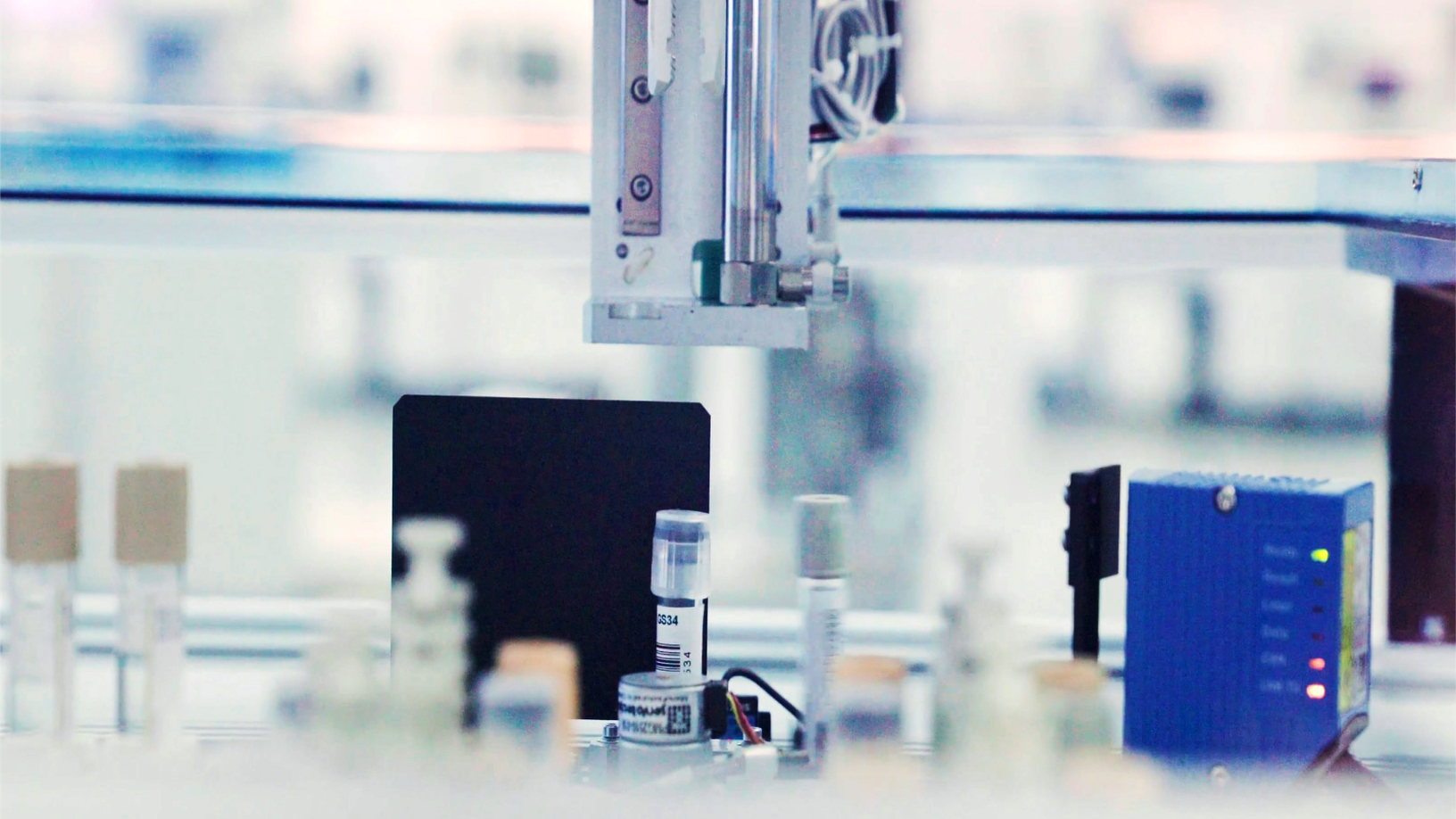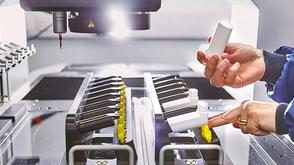Inside Ellab’s Growth Story: How Raising the Temperature Tripled Revenues


A new vision and thinking outside the box, helped drive this specialist thermal validation company to new heights.
- Headquartered in Hillerød, Denmark, Ellab is a specialist thermal validation company serving the pharma, biotech and food manufacturing sectors.
When EQT acquired Ellab in 2019, it had a clear strategy for creating value.
Headquartered in Hillerød, Denmark, the specialist thermal validation company serving the pharma, biotech and food manufacturing sectors had been growing steadily for several decades – a trajectory EQT was confident it could accelerate.
Yet Ellab’s potential proved far greater than originally thought. Just a few months after the acquisition, the EQT-appointed board turned up the heat by raising Ellab’s medium-term financial targets. It did so again two years later, as its vision for creating the only global business validating and monitoring temperature-controlled environments for pharmaceutical and biotechnology drugs began to bear fruit.
By the time Ellab was sold in 2023, the team had repeatedly beaten targets. Revenues had increased by close to 40 percent per year (of which half was through organic growth), while EBITDA, a popular measure of profitability and performance, had nearly tripled.
An important factor behind this achievement was working with the Ellab management team to reimagine how the company could improve operations and drive growth. When targets were first discussed, people started to think outside the box and management came to the board with a very solid plan, recalls Bo Risberg, who chaired Ellab during EQT’s investment.
“The question you have to ask is how do you continue and even accelerate the success of a company that has been growing for more than a decade at more than 14 percent and is very profitable,” said Risberg.
“You need a new vision so that you’re not just doing the same thing and hoping competitors won’t catch up.”
Identifying a growth opportunity
Ahead of the 2019 acquisition, the healthcare team in EQT’s Copenhagen office had followed Ellab and its management team closely since its sale to another private equity house three years earlier. After analyzing the growth opportunity, EQT made an unsolicited bid in June of that year.
Spurred into action, Ellab’s then-private equity owners conducted a swift auction process. EQT’s bid was not the highest, but it had finance in place, and there was less chance of it being barred by regulators on antitrust grounds, which might have been the case with bids from Ellab’s industry peers. The deal was signed just two months later.
“You need a new vision so that you’re not just doing the same thing and hoping competitors won’t catch up”
EQT’s investment case was straightforward.
Ellab was already a global leader in the niche market for testing temperature, humidity and pressure in controlled environments. It would proactively focus on higher-growth pharma and biotechnology customers.
New products and business lines would be introduced, the sales function would be strengthened and the business would expand geographically while digitizing operations.
Further, acquisitions of small support engineering firms would make Ellab the only company of scale able to complement validation and monitoring with services.
“It’s one thing to have market-leading products in a well-defined niche, but it’s a big leap to believe that you can double or triple the size of a company in four years,” says Rikke Kjaer Nielsen, EQT partner responsible for Ellab.
“But we recognized that this was a fast-growing, resilient market serving a large, blue-chip customer base with deep pockets, which would allow Ellab to build out business models around its core offering to better serve its customers.
Turning vision into reality
Soon after the investment closed, the validity of the investment base case was confirmed and the new, more ambitious plan was launched.
Validation, the main division, was growing steadily with increasing demand for testing the high temperatures used to sterilize pharma and biotech manufacturing production lines.
The monitoring division, which checks drug storage conditions, had only just been acquired prior to EQT’s involvement, and needed to improve its product range and operations.
Ellab under EQT between 2019 and 2023 also acquired and absorbed 15 smaller support engineering firms in the US and Europe in order to improve service coverage.
“This was a very important part of what we did,” explains Risberg. “Sometimes the owners of these companies were reluctant to sell but we built good relationships and they realized they would be part of a world-class product and service company.”
As products improved, so did sales. Teams became more proactive in selling to targeted customers, using a digital customer relationship management system to identify and prioritize sales opportunities worldwide. The number of sales offices was increased from nine to 30.
“By the time we exited Ellab more than a third of revenues came from new products launched over the preceding three years compared to 15 percent at our entry,” notes EQT director Stephanie Andersen.
“That’s a big testament to investing in R&D, improving the product portfolio and future-proofing the company.”
As part of the changes a new CEO was appointed in 2021 to replace the long-time leader who stepped up to a revamped board. Additionally, new heads of finance, HR, and M&A were recruited. Strategy and commercial excellence teams were created, and Ellab was reorganized according to global business segments rather than individual country teams, as was previously the case.

Two years into EQT’s ownership, performance was strong, and EQT, the board and management discussed the potential for lifting their ambitions even further. This included a new stretch target of an EBITDA of DKK500m ($73m) for the 2024/25 financial year, more than four times the DKK124m attained immediately before EQT’s acquisition.
Ellab was sold in 2023 for an undisclosed sum, having hit its main targets and on track to reach its expanded EBITDA goal. In only four years, revenues tripled from DKK274m to DKK975m, and the number of employees had risen more than threefold to 770 by 2023.
“Essential to hitting these goals had been the high level of trust between the board and the executive team, bolstering the latter’s confidence that it could meet expanded targets for revenue and the bottom line,” Risberg said.
ThinQ by EQT: A publication where private markets meet open minds. Join the conversation – [email protected]
Spotlight OnHealthcare
Exclusive News and Insights Every Week
Sign up to subscribe to the EQT newsletter.




